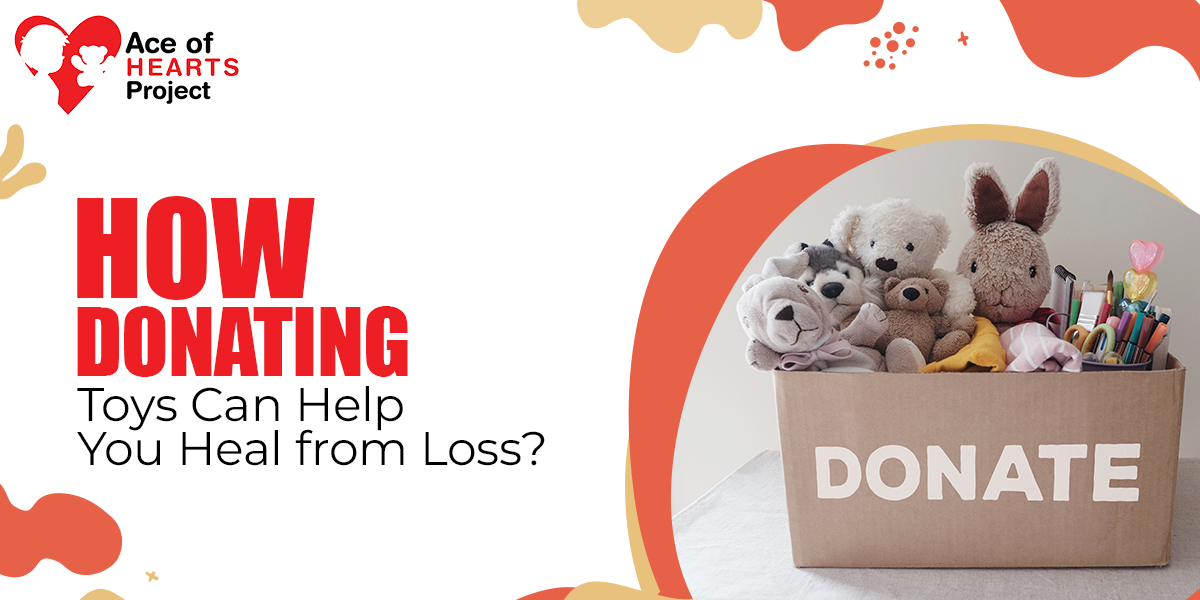How Donating Toys Can Help You Heal from Loss?
At some point in life, everyone experiences a personal loss, whether it is the end of a meaningful relationship or a traumatic life shift. People find many ways to process grief. However, on the other hand, children may not fully understand their emotions or how to express them. These children often grieve in silence or through behavioral changes. This eventually becomes withdrawn, acting out, or clinging to familiar comforts like toys. Therefore, soft toys often serve as an emotional support to children. These Stuffed animals hold memories and offer comfort when words fail. Consequently, help children cope with loss, creating a safe space for children to express their feelings. Therefore, encouraging people to donate soft toys can help those suffering to process emotions positively.
Furthermore, various programs like toy donation around the world have experienced a rise in donors, often leaving heartfelt letters along with the donation. This simple act of donating toys, once carrying emotional bonds, can be a powerful step toward emotional healing.
The Emotional Connection We Have with Toys
Toys, especially soft toys, often carry a deeper emotional weight than we acknowledge. For children, they are comforters, playmates, and emotional anchors. For adults, they become symbols of a child’s early years, of a person we lost, or even of happier times. When someone experiences loss, these seemingly inanimate objects take on a deeper significance.
A teddy bear that once sat on your child’s crib, or a plush toy that reminded you of someone special, can become both a source of comfort and a painful reminder. This duality is what makes soft toy donations so powerful. Letting go of the object doesn't mean letting go of the memory—it means transforming grief into generosity.
Why Donating Toys Can Help in the Healing Process
1. Creating Space for Emotional Recovery
When you're grieving, your physical environment can affect your mental state. Holding onto items linked with loss may offer temporary comfort, but over time, they can also serve as emotional anchors that prevent forward movement. Donating toys allows you to physically and symbolically release some of the grief.
This act of giving can create emotional and physical space—space for healing, new memories, and recovery.
2. Transforming Pain into Purpose
One of the most healing aspects of toy donation is that it transforms pain into purpose. When you donate soft toys, you’re not just getting rid of an item—you’re passing along comfort to a child who may be experiencing their own form of hardship. This sense of purpose often provides a new narrative to your grief, giving it meaning beyond pain.
By participating in Toy Donation Programs, individuals often feel a renewed sense of usefulness, especially when their grief has made them feel helpless or lost.
3. Reinforcing the Human Connection
Grief can be isolating. But when you engage in a giving act like soft toy donation, you're reminded of the interconnectedness of humanity. Your pain can help bring joy to someone else. And that’s not just poetic—it’s real. Numerous recipients of donated toys, especially in hospitals, shelters, and orphanages, describe how receiving a soft toy lifted their spirits and made them feel cared for.
Knowing that your gift has made a real difference can be a deeply validating experience during a time of emotional vulnerability.
4. Honoring the Memory of a Loved One by Donating Toys
Some people choose to donate toys in honor of someone they’ve lost. It becomes a memorial gesture—a tribute. Writing a small note or tag on the toy in memory of the departed not only honors their legacy but also ensures that their memory continues to bring joy and comfort to others.
Toy Donation Programs often welcome these personalized contributions, allowing donors to feel like they’re actively doing something positive in memory of the person they lost.
How to Start Donating Toys for Healing
If you’ve recently gone through a loss and are wondering how you can turn your pain into something meaningful through toy donation, here are some steps to guide you:
1. Select the Right Toys
Start by going through your collection and identifying toys that are in good condition. When you donate soft toys, especially, make sure they are clean and free from damage. These items are often given to children in vulnerable situations, so quality matters.
2. Clean and Sanitize
Wash the toys thoroughly, especially soft toys. Many Toy Donation Programs have strict hygiene requirements, particularly when donations are going to hospitals or care centers.
3. Choose a Trusted Organization
Look for local Toy Donation Programs, hospitals, shelters, or community outreach organizations. Some trusted names include:
Ace of Hearts
Toys for Tots
Ronald McDonald House Charities
Baby2Baby
Local orphanages or foster care agencies
You can even search online for "soft toy donation near me" to find community-specific options.
4. Add a Personal Note (Optional)
If you're comfortable, add a note explaining the meaning of the toy. This gesture can create a beautiful connection between the donor and recipient, even if they never meet.
5. Involve Others
Turn your personal healing into a community effort. Start a donation drive in memory of your loved one. Invite friends and family to participate. Not only will you be expanding the impact, but you'll also surround yourself with support during your healing process by donating toys.
Psychological Backing: The Science Behind Giving and Healing
Psychologists agree that altruistic behavior, especially in the form of giving, can help mitigate symptoms of grief, depression, and anxiety. According to a study published in the Journal of Positive Psychology, individuals who engaged in consistent acts of kindness reported increased well-being and reduced depressive symptoms over time.
The simple act of giving, like soft toy donation, activates the brain’s reward system, releasing feel-good chemicals like dopamine and oxytocin. These chemicals help regulate mood and reduce stress, offering not just emotional but also physiological benefits.
Final Thoughts: Healing Comes in Many Forms
Healing is not the same for every child. Donating toys won’t erase the pain completely, but it can surely help to cope with the grief. When you donate soft toys, you're not just parting with objects; you're sharing love, comfort, and memory in a way that continues to ripple outward.
So the next time you come across a soft toy tucked away in the corner of a cupboard, donate it to the ‘Ace of Hearts Project’. This way, your toy can bring joy and comfort to a child in need. Therefore, your small gesture can make a big difference in someone’s healing process and happiness.

